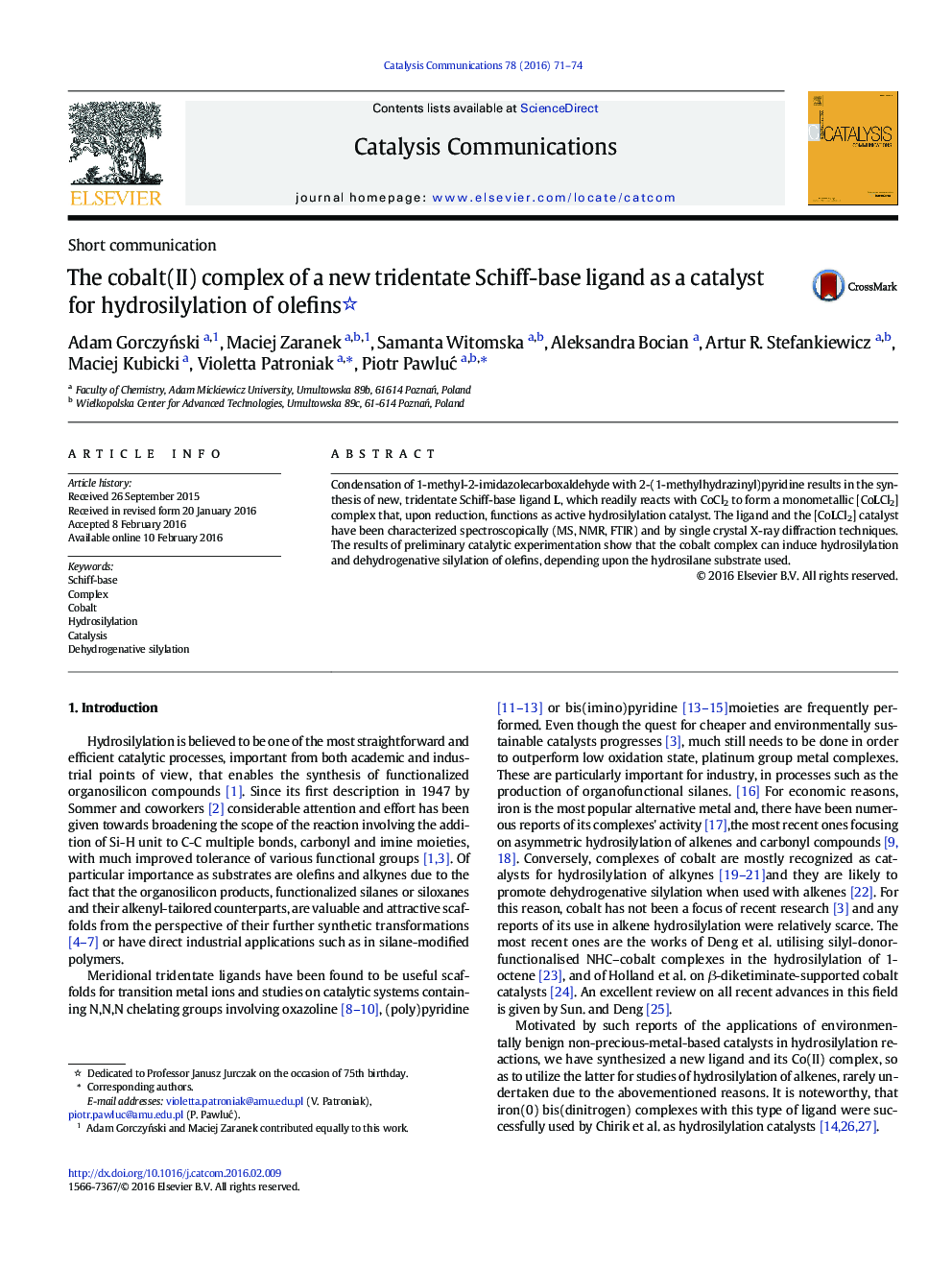| Article ID | Journal | Published Year | Pages | File Type |
|---|---|---|---|---|
| 49821 | Catalysis Communications | 2016 | 4 Pages |
•Synthesis of new Schiff-base ligand and its cobalt(II) complex are reported•Crystallographic structures of ligand L and [CoLCl2] complex are presented•Cobalt complex induces hydrosilylation and dehydrogenative silylation of alkenes
Condensation of 1-methyl-2-imidazolecarboxaldehyde with 2-(1-methylhydrazinyl)pyridine results in the synthesis of new, tridentate Schiff-base ligand L, which readily reacts with CoCl2 to form a monometallic [CoLCl2] complex that, upon reduction, functions as active hydrosilylation catalyst. The ligand and the [CoLCl2] catalyst have been characterized spectroscopically (MS, NMR, FTIR) and by single crystal X-ray diffraction techniques. The results of preliminary catalytic experimentation show that the cobalt complex can induce hydrosilylation and dehydrogenative silylation of olefins, depending upon the hydrosilane substrate used.
Graphical abstractFigure optionsDownload full-size imageDownload as PowerPoint slide
